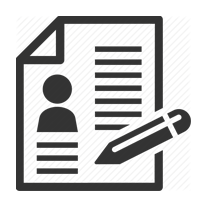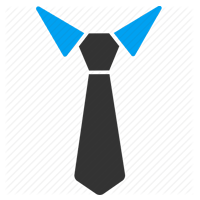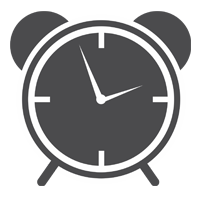How often have you been to an interview and been surprised by the questions you were asked? By understanding the three basic types of questions employers use, you can actually prepare for an interview and take away much of the anticipation.
1. Behavioral Questions
The first and most common are behavioral questions. The concept is to use your past behavior to predict your future behavior. It will often take the form of, tell me about a time, or give me an example, to allow you to draw upon your past experiences to show your skills and knowledge.For example, tell me about a time when you had to meet a deadline, and you didn't meet expectations. Or, give me an example of a time when you innovated on a project.
2. Case or Situational Questions
The second type of question is case or situational. The purpose is to evaluate your problem solving and analytical abilities. It will often take the form of, how would you, or what would you do? Your answer shows how you would approach a problem, or a work situation, and allows them to see how you think on your feet.
For example, how would you change our website? Or, what would you do if you had an angry client?
3. Resume-based Questions
The third type is resume-based questions. The purpose is to gain more information on experiences you have highlighted and confirm the depth of your skills and knowledge. You will be asked direct questions from your resume. So you are expected to be able to expand on it in detail.For example, you mentioned in your resume that you have HTML experience. Can you tell me where you've used this? Or, you mentioned in your resume that you speak French. Bonjour, comment allez-vous?
Knowing how questions will be asked is important, as you prepare for the interview.
PRACTICING YOUR ANSWERS
Practicing for the interview helps you feel confident and focused on the interviewer, not stressed out about what you're going to say. You will want to mirror an actual interview as closely as possible. Set up a space that is conducive to interviews, dress the part, and have afriend or family member play the part of the interviewer. You can also create flashcards that will allow you to shuffle them and be comfortable answering in any order.
Be sure to record yourself so that you assess your body language and confidence as you answer the questions. This technique takes time and effort, but your practice will be designedspecifically for your desired job.
Remember, the more you practice, the better prepared you will be for the interview.
RESEARCHING COMPANIES
You will be given an opportunity to interview the company to make sure that it is the right organization and role for you. Asking questions not only confirms your interest in the company, but also can be used to make you stand out in the interview process. You will want to demonstrate your knowledge of the organization and interest in the position. There are five categories of questions that you should prepare.
First, you should prepare a question to ask about the company. You want to demonstrate your interest but you also want to confirm what you've learned about the company in your research.
Second, you should have a question about the history of the position. By asking why the position is vacant, you will gain insight into the organization and the potential for advancement. Third, you should ask a question about the job responsibilities. This will allow them to see you in that role, and help you gain a solid understanding of the position. Fourth, you will want to ask about the expectations of the position. This will allow you to see how you'll be evaluated.
Finally, you'll want to ask what the next steps are in the process. This is important so you know when to follow up. To develop your own list of questions, you should derive them from the research you have done on the organization. You can start with the company website. Websites can give you an enormous amount of information, including strategic plans, annual reports, new product information, and much more. Look at their homepage, websites have a lot of information to start developing your questions. If you dive deeper in the website, you can find even more information. For example, the “About Us” sections of the company website. Many times in this section, you will find annual reports and strategic documents. We can also take a look at the press release's page to find news.
Articles can be a good source of information about companies. You can see this search brings up quite a bit of information on the company from a variety of sources. Each article contains information that you may not have found on the company's site that will allow you to ask deeper questions. Now let's take this a step further by researching individuals at the organization. Social networking sites, like LinkedIn are a great place to start. You can also see if employee job titles have changed steadily. A great question to ask could be, what is the career path for this position?
MAKING A FIRST IMPRESSION
Impressions are set within the first few minutes of the interview, so it is important to arrive with confidence and a friendly manner. The first judgment an interviewer makes is going to be based on how you look and what you're wearing. It is key that they see you as a potential employee, so dressing the part is important. This will mean different things for different organizations. Be sure to note their dress code and dress to it, or slightly above it. Being on time is essential.Don't be too late and don't be too early.
This can put the interviewer in an uncomfortable position. You should show up 5-10 minutes early. If you do arrive earlier than this, find a place to wait. As you are arriving, be nice to everyone you encounter; receptionists and administrative assistants often play a significant role in the interviewing process and provide feedback to the people interviewing you.
When you finally meet your interviewer, greet them enthusiastically and extend your hand to give a firm handshake. Much of the interviewer's impression of you is determined by the rapport orchemistry that you establish.Use the research you've done to start small talk.
Be prepared with a copy of your resume. You should be ready to offer it in case the interviewer has misplaced their copy.
NAVIGATING DIFFICULT INTERVIEWS
Although you have prepared well for the interview and enter confidently, there are uncomfortable situations that can turn into a bad interview. A common situation you might encounter is drawing a blank to a question you're asked. In this case you'll want to ask for a minute to think. This will allow you the opportunity to collect your thoughts and answer effectively. If you've prepared well, the more common situation you'll run into is facing a bad interviewer. A bad interviewer might be unfocused, disinterested, and unprepared.
If this is the case, you'll want to take charge and say something like, here is the most recent copy of my resume, let me tell you about some highlights. This allows you to focus on your strong points as they pertain to the position.
A bad interviewer may also dominate the interview by doing all the talking. In this situation you'll want to be an attentive listener and take notes. If you want to break into the conversation, lean forward and try to get your message across. If that doesn't work, they will eventually ask you if you have any questions.
This is where the questions you've prepared will show your critical thinking skills and match for the job. A bad interviewer might also ask inappropriate and illegal questions. In some countries, this can be personal questions about age, ethnic background, or religion. In most cases the interviewer is not aware that the question is illegal, so it will be up to you on how to handle it.You'll want to think through what they are asking for and then rephrase it so it is appropriate.
For instance, the illegal question would be, "What is your native tongue?" You would rephrase to, "I can fluently speak English, Spanish, and French." If the question is truly offensive, you should state, "This is a question that I haven't gotten before, why do you ask?" If you aren't familiar with what types of questions might be illegal, then check with your local laws.
Remember, it's not always your fault if things don't work out. You should give your best shot in each interview, even if things go bad.
UNDERSTANDING THE IMPORTANCE OF BODY LANGUAGE
Beyond practicing interview questions and navigating difficult situations, body language is essential to a successful interview. Studies show that over 90% of communication occurs through body language. In the interview process there are three key areas you'll want to focus on:
1. Posture: You will want to have proper posture. Relax and lean slightly forward towards your interviewer. This is gives the impression that you're interested versus leaning back which will make you appear too relaxed. You can also try mirroring your interviewer.Sometimes you can establish rapport by adopting the same posture.
2. Eye contact: You will want to maintain proper eye contact. To avoid appearing aggressive, you should blink at regular intervals and nod your head now and then. If this feels uncomfortable for you, practice with a friend.
3. Tone and pitch:You will want to be aware of the tone and pitch of your voice. Speaking in a clear and controlled voice will show that you are confident. You should remember that body language isspecific to cultures. You will want to research proper body language for the country you are in.
HANDLING TRICKY OR DIFFICULT QUESTIONS
No matter how well you prepare for the interview, you may run into what you perceive as a tricky question. Let's take a look at some of the best approaches to responding. Many of these tricky questions fall into the situational category. Remember, this is when interviewers are evaluating your problem solving skillsand analytical abilities. There were three types of situational questions that are commonly encountered during interviews.
First, there were situational questions known as brainteasers. These seem like they make no sense. For instance, how many airplanes are in the sky right now? The goal of the interviewer is not to get the right answer from you, but to see how you think through the situation. This person wants to see how you examine the different angles and how you'll come to a conclusion. In this type of question there is not necessarily a right answer, however they do want to see your thought process.
Walk them through your reasoning and feel free to ask questions to clarify any aspects that you are unsure of for the situation presented.
The second set of questions was focused on testing your knowledge and skills. However, how they frame them was either aggressive, uncomfortable or rude. Most often they do not realize that this is the case. For instance, if you were interviewing for a sales position, someone might say to you, sell me this pen. You may feel uncomfortable being put on the spot like this. Remember, they are looking at your skillsand your knowledge. Focus on your answer, and not the way they frame the question. You can best prepare for these questions by analyzing the job description for the skills and knowledge that they are seeking.
Finally, the third set of questions was questioning fit, just in a bizarre way. For instance, if you were a tree, what would you be? In an entrepreneurial setting you may want to be fast growing like bamboo. But in a conservative banking environment you may want to be a solid hardwood tree like an oak. Bizarre questions like these are often used to gauge your cultural fit. Think about the culture of the organization before you interview. You want to be able to show a trueinterest in their organization by matching your answer to their culture.
Other times there may not be a clear reason for the bizarre question. Just take a breath and ask them to clarify what they are trying to gain from the question. The next questions that came up were behavioral questions, primarily focusing on the negative. For example, what is your biggest weakness? You have to remember that people are not perfect, so the interviewer wants a realistic assessment of how you gauge yourself. The negative that you pick should be one that is obvious to everyone at the table.
The key is to show how you overcome the negative, and can learn or change from it. For instance, if you were switching industries, you might say, I don't know this new industry well, but I see this as an opportunity for growth, and I quickly adapt to new environments. Also in behavioral questions, they will test for your skills and fit in indirect ways. For instance, how would your friends describe you? Again, you can gain clues for what they might be looking for by analyzing the job description and preparing ahead of time. So if you are in an entrepreneurialenvironment, your friends would describe you as innovative.
And if you were in a banking environment, your friends would describe you as solid and trustworthy.
Finally, a common resume-based question that came up was essentially, tell me about yourself. This can be asked in a variety of ways, including, why do you want to work for us? And, what can you bring to this company? Candidates often get frustrated with thisquestion because they feel the interviewer didn't prepare. This may very well be the case, but the interviewer could also be looking for you to tell a coherent story of why you're interested in the position, and why you're the best candidate. You should be able to walk them through your resume, matching your abilities to the job description and fit within the organization.
As you can see, with proper preparation, tricky questions are really not so tricky. With a solid understanding of the position and company culture you will be able to face these questions confidently.
ASSESSING YOUR PERFORMANCE
Once you've completed the interview, you're in the final stage, follow-up. A crucial step is to assess your performance; how well did you do? I think this is one of the most important steps. You want to think about what went well and what didn't. You can use this information to highlight your strengths and improve your performance for future interviews. An excellent way to assess yourself is through performance-based techniques. Interviewers often use this in their own process to analyze candidates.
To analyze your performance, you'll first want to outline the factors that will make a successful candidate in their organization. Start with what the interviewer focused on and list these first. Then go back to the job description and identify areas that came up in the interview and that you feel are important.
Take the time to reflect on your answers to determine how strong they matched up with each need. Rate how you performed on a scale of 1-5; 1 being unqualified and 5 meaning exceeds qualifications. Think of yourself as the employer, what score would you give yourself for each of these factors? If you didn't perform well in certain areas, take this opportunity to go back to develop sample questions and practice them.
At this point you may decide that this isn't the right organization or role for you. If you feel this way, you should write a note thanking them for their time and explain that the position isn't right for you. If this is the right organization for you, you'll want to write your thank you notes so that they emphasize your strengths.
SAYING THANK YOU
Now that you've analyzed your performance, you need to write your thank you notes. You'd be surprised at how many people do not do this step, and how crucial it is to making you the candidate of choice. A thank you note does not need to be hard. It's usually only five to ten sentences in length, but has to have a powerful punch to it. It can also be broken down into three sections to make it easier.
In the first part you'll want to thank them for their time. In the second part you'll want to reiterate your strength to the position. This should be easy since you'll be able to refer back to your interview performance review done in the previous step and pick out your strengths to highlight. This should be specific to the interview you had with this particular person. Finally you'll want to let them know that you want the position and are looking forward to hearing from them soon.
Also if by chance you did not bring something up in the interview that you feel would make you a strong candidate you can add a few sentences to highlight this experience. You'll want your letters to arrive within 48 hours of the interview, so email is appropriate. If you interviewed with more than one person, you should send each person an individual thank you note. Again, this will make you stand out from everyone else. This could be the tie breaker between two candidates. You should always proofread the drafts before sending. You don't want any last minute mistakes to ruin your chances. As a final note, keep track of your interviews. This includes the date of the interview, the contact, as well as any other comments you would like to make.
RESPONDING TO THE DECISION
You should expect to hear a response approximately two weeks after the interview process. There are several potential outcomes from your interview. In the best case, the hiring manager will call you to extend an offer. In this case you want to let them know you're excited to get the offer and ask for details. Then ask them for time to think about the offer. This allows you to collect your thoughts prior to going into negotiations. If the hiring manager has not gotten back to you and it has been more than two weeks, there can be many reasons for this, but it is reasonable to follow-up with a short email, checking in and expressing your interest.You may still be in the running. The third scenario would be that you don't get the position. At this point you don't know how close you came, so you want to keep the door open. You should send a thank you note to the hiring manager. Try to connect at future conferences or events to stay in touch. You need to continue to network. Remember, just because you didn't get this job, doesn't mean you won't get the next one. Finally, no response. Unfortunately, employers don't always deliver the bad news.
Many people who are hiring somebody don't get back to the candidates who didn't get the job. Although not a professional practice, it does happen. If it has been more than a month, send a second note reiterating your interest in the position and your hope to hear from them about future positions. No matter the response you got from the interview, congratulations on making it to the candidate pool! If you got the offer, fantastic! If you didn't, take some time to reflect and improve for the next time.
Just because you don't get the first job you interview for, don't give up, landing a job isn't easy. We hope that you learned some valuable tools that you can use in your interviews and that you find the job that is right for you.
















